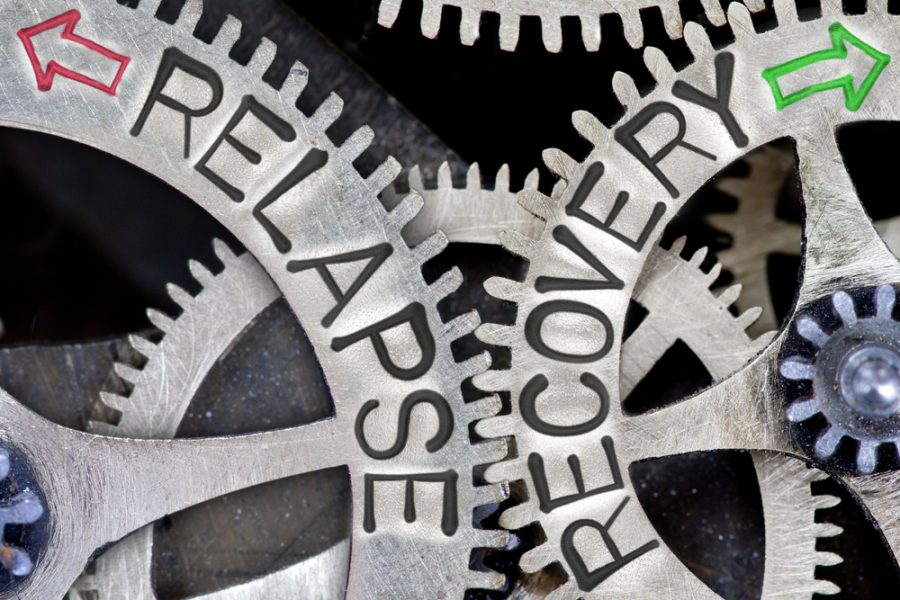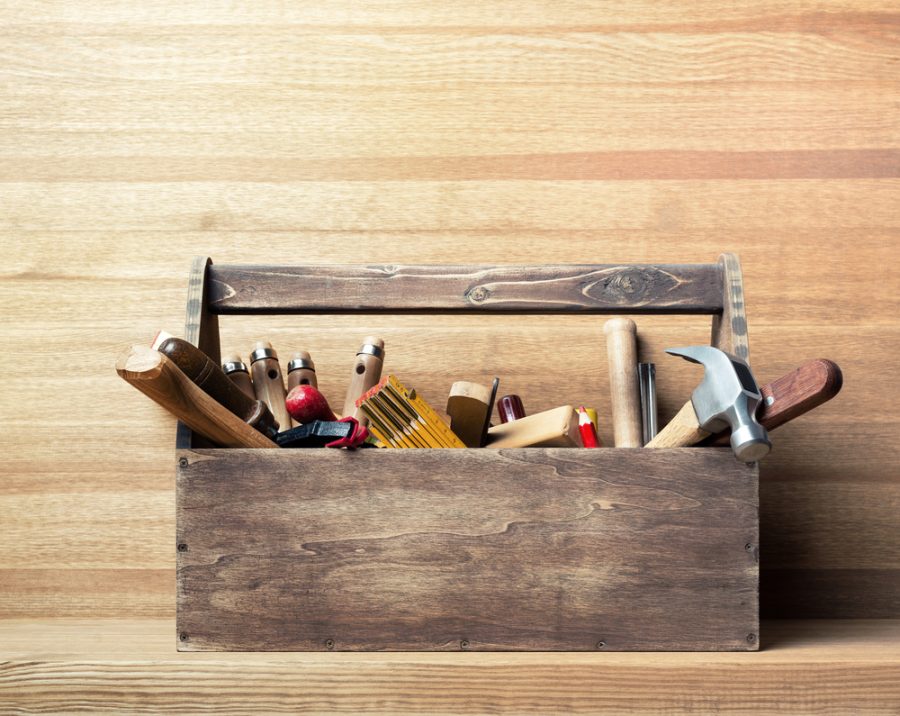
If you’ve recently gotten clean, congratulations! You’ve taken a huge step toward a better life by getting sober. Things are probably starting to look up. So, why do 40-60% of recovering addicts and alcoholics who seek treatment relapse within the first year? In this article, we’ll cover the warning signs of relapse and ways to create an effective relapse prevention plan.
Table of Contents
What Is a Relapse Prevention Plan?
If you’re newly sober, you’ve probably realized that even though you’ve changed, the world around you hasn’t. All the joy and pain, the victories and setbacks, the highs and lows—it’s all still there. And, unlike when you were using, you may feel a glut of emotions — both good and bad. Unless you’ve learned new skills to manage your life during your time in rehab, you’re vulnerable to relapse.
At The Blackberry Center of Central Florida, we specialize in guiding individuals toward a recovery-based lifestyle. In our treatment programs, clients learn coping skills and behaviors aimed at maintaining long-term sobriety, including creating an effective relapse prevention plan.
A relapse prevention plan is an intentional plan of action designed to give you the knowledge, skills, and resources to prevent relapse and combat the thoughts and behaviors that lead to using.
The 3 Stages of Relapse

Recognizing that you’re in danger of relapse is critical to stopping it. You may believe that relapse happens when you take that first drink or drug. But in reality, a relapse starts to happen well in advance of the act of using. There are three stages of relapse:
- Emotional relapse
- Mental relapse
- Physical relapse
Emotional Relapse
The path toward physical relapse begins with emotional relapse. At this stage, you’re probably not actually thinking about using, but you may start to experience the old, uncomfortable feelings for which you used substances to avoid or medicate. If you’re feeling sad, lonely, isolated and tired, you may be in the emotional relapse stage.
Emotional relapse warning signs include:
- Isolating yourself
- Bottling up your emotions and not sharing
- Not going to meetings
- Going to meetings but not sharing
- Not reading your daily meditations or doing your daily routine
- Not asking for help
- Poor self-care, including poor eating and sleep habits
In order to avoid an emotional relapse, use these tips:
- Don’t isolate or clam up: Now is when you need connection most. Ask for help and tell someone how you’re feeling.
- Be intentional about better self-care: Make sure you’re eating decent meals and getting a good night’s sleep.
- Don’t push yourself too hard at work or in your personal life: Practice relaxation techniques to ease your anxiety and fear.
- Let go of anger and resentment: Did someone cut you off in traffic this morning? Did your roommate eat your pizza rolls? Let it go. Page 64 of The Big Book of AA tells us, “Resentment is the ‘number one’ offender.” It festers and grows if you let it, and will greatly increase your risk of relapse
Mental Relapse

If you allow your emotional relapse to continue unchecked, you’re in danger of advancing to the mental relapse stage. This is when so-called “stinking thinking” starts to happen. Your thoughts begin to drift, the lure of old behaviors gets stronger, and the danger of physical relapse grows.
Warning signs of mental relapse include:
- Fantasizing about using drugs or alcohol
- Thinking about the people you used with, the places you used, and the ways you consumed your drug of choice
- Reminiscing about the “good times” and glamorizing your past use
- Lying about your behavior
- Hanging out with old friends who still use
- Planning a relapse around other people’s schedules, such as when your significant other will be away.
If you’re experiencing any of these warning signs, you’re playing with fire. You need to act now. In order to to avoid a mental relapse, keep in mind these tips:
- Play the tape through: Think beyond the initial high that you might get by using and consider the consequences. Is it worth it?
- Reach out: Tell someone how you’re feeling. If you have a sponsor (and you should!), this is the time to reach out to them. You’ll be surprised how much better you’ll feel after talking about your situation.
- Get to a meeting: Take advantage of the protection and safety of your support system. You’re sure to find help in the rooms of AA/NA, and there’s probably a meeting happening somewhere close, sometime soon.
- Do something: Sounds simple enough, right? It is! Do something to get out of your own head. Focusing your attention elsewhere can help take your mind off of using drugs or alcohol.
Physical Relapse
If you fail to recognize and take action during the emotional and mental relapse stages, a physical relapse is much more likely. At this point, you’re driving to the liquor store. Pulling into the parking lot of the bar. Texting your dealer.
For most people, it’s already too late to stop what comes next. But there is one lifeline left – use it! Call your sponsor, friend, or family member. You need someone to talk you down before you take that drink or drug. Remember where you’ve been. You don’t want to go back there!
Creating your Personalized Relapse Prevention Plan
Creating a relapse prevention plan is not complicated, but it does require some guidance. Here are three key elements to building an effective plan to stay sober and avoid relapse:
1. Manage Triggers and Cravings
Identify and make a list of your triggers — the people, places, things and feelings that could lead to a relapse. Some are obvious, but others may not appear until they’re right in front of you. Recognizing and avoiding your triggers will go a long way toward preventing thoughts, behaviors, and cravings that could jeopardize your sobriety.
Cravings are simply a fact of recovery that you will inevitably have to face. The good news, however, is that cravings are temporary, and you can effectively manage them with the proper tools. When cravings hit, find something to distract your mind and direct your thoughts towards something productive or fun. Rekindle old hobbies that fell to the wayside when you were using. Be bold and try new things. Your sobriety gives you options you didn’t have when using.
2. Fill your Tool Box

Every builder needs a toolbox and a good set of tools. Building and maintaining sobriety after a substance use disorder is no different. You need to fill your recovery toolbox with the right tools for the job. You won’t find them in a hardware store, but you will find them in abundance in substance abuse treatment centers, support groups, and fellowships, such as AA and NA.
Here’s a quick list of essential tools you should keep in your recovery toolbox:
- The Big Book of Alcoholics Anonymous and/or the NA Basic Text
- Some form of daily meditations, such as Just for Today or 24 Hours a Day
- A list of support groups and AA/NA meetings available in your area
- A sponsor who has worked the 12-steps
- Regular exercise
- Journaling
- Relaxation methods, including meditation
- A list of people you can call when the chips are down and you need to talk
- A record of healthy or fun activities you enjoy and can do by yourself or with others
3. Build a Support Network
Getting sober and maintaining your new sober lifestyle is much easier with the help of others, especially people who are on the same path. Building a network of sober friends, mentors, professionals, and more is like creating an insurance policy against relapse. When you’re struggling with your mental health, having doubts and questions, or just need someone to listen or a shoulder to cry on, having a network of people you can connect with is priceless.
When you got sober, you left your old using friends behind. And if you haven’t, you should. Now you have a chance to build an entirely new network of friends who share the same struggles and successes that you’re experiencing. This new fellowship provides a unique sense of belonging that many addicts have never felt before.
Here are some smart ways to build a sober support network:
- Get a sponsor and talk/meet regularly
- Try new meetings and introduce yourself to others
- Utilize phone lists from meetings, and have the group leader add your contact info to the list
- Get involved in service work
- Stay in contact with your counselors from treatment
- Work on improving your relationships with family and becoming more engaged
- Consider seeing a therapist or joining a support group
- Volunteer at your local church
Remember, getting sober is just the first step toward living your best life. Only by staying sober and growing as a person will you reap the richest rewards of living clean. There will be challenges and tough times, but by creating a proactive relapse prevention plan you’ll be well-equipped to weather the storm and realize the true joy of long-term sobriety.
The Blackberry Center Has Got You Covered
If you feel like you’re about to relapse, we are here to help. Contact The Blackberry Center in St. Cloud, Florida online or by phone at 407-449-8142 to look into the possibility of treatment today.
The post Creating an Effective Relapse Prevention Plan appeared first on The Blackberry Recovery Center of Central Florida.
Source
Original Author: The Blackberry Center

